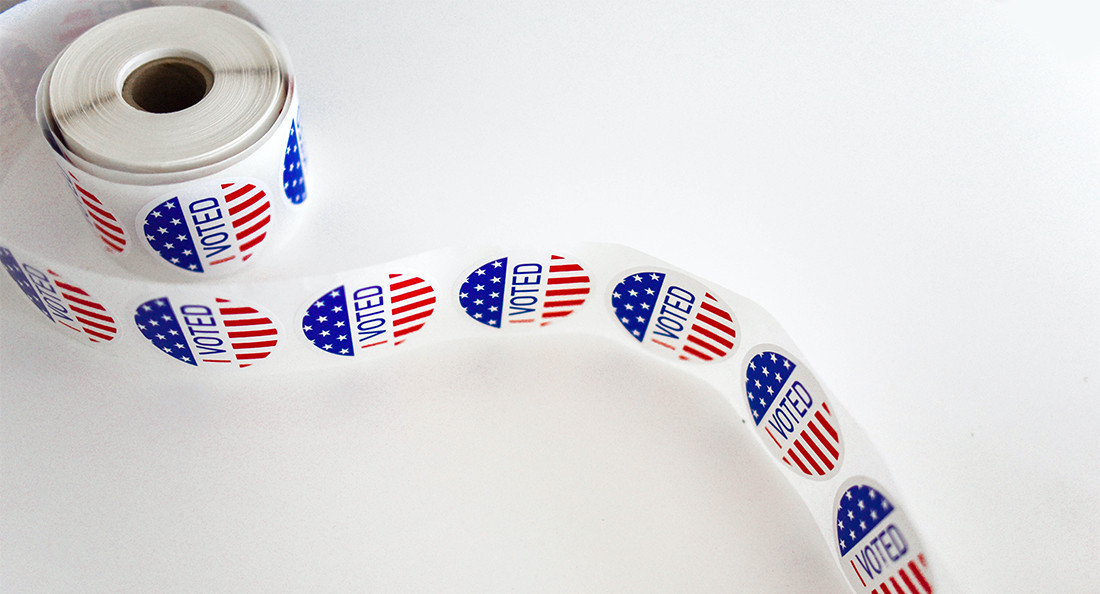Feeling blue while seeing red
A Canadian experience of the US election
When I stepped off my connecting flight at Newark Liberty International Airport at the start of the month, nothing really seemed out of the ordinary. In stark contrast to a Minneapolis trip I made over the summer, I didn’t see people dressed in head-to-toe Republican merchandise, complete with “Trump 2020” face masks.
What I did see, in a car on my way to Philadelphia, was a prominent “Women for Trump” billboard and enough Republican lawn signs to be laughable, if the situation wasn’t so dire.
Almost four years ago to the day, I went out to a bar and toasted the person I thought would become the first woman president of the United States. I remember busing home that night feeling a little nervous but invigorated and optimistic.
I spent the rest of that night watching as one outlet after another called the election in favour of Donald Trump – the same candidate who openly mocked a reporter with a disability, disparaged Mexican immigrants and insulted women’s physical appearances while on the campaign trail.
The Trump administration has since rolled back protections for everything from queer communities to the environment, all while encouraging distrust in journalists, scientists and seemingly anyone who questions his rhetoric. Another element of Trump’s impact may be even more horrific.
As Los Angeles Times columnist Robin Abcarian summarizes, Trump’s legacy “will be brutal but simple: he made it okay to be racist again.” It’s a phenomenon known as “the Trump effect,” which Instagram account @soyouwanttotalkabout says includes “the way he has emboldened the worst in people.”
During the Trump presidency, the racism, misogyny and homophobia that have always existed in America emerged from the shadows and took centre-stage at everything from presidential press briefings to a notorious white supremacist rally in Charlottesville.
Americans have become more politically polarized during Trump’s time in office, and more people than ever seem to share their views in public and on social media. Maybe I’m just paying more attention lately, but I’ve noticed a different trend in Canada.
When it comes to American politics (and Canadian issues, for that matter), too many Canadians either stay silent or claim seemingly “neutral” stances. I didn’t keep count, but it’s possible I saw more Instagram posts about “agreeing to disagree” from my Canadian friends than I did backing either major US political party.
Desmond Tutu famously said “if you are neutral in situations of injustice, you have chosen the side of the oppressor.” Until recently, I didn’t know the second part of this quote, which is “if an elephant has its foot on the tail of a mouse, and you say that you are neutral, the mouse will not appreciate your neutrality.”
Those words are especially poignant today – and not only because the elephant is the mascot of the Republican Party. Too many issues, rights and lives are at stake in this election. The winner will not only lead the United States but also impact Canadians and the entire world.
That’s why it was so frustrating to open my phone on Election Day and see texts from Canadian family members about making popcorn, preparing for new memes and getting ready to watch the results come in. This election isn’t a spectacle, but something that will dictate American policy for years to come.
In a counterintuitive way, it’s almost comforting to see all the Republican lawn signs. At least those people are invested enough to have an opinion.
Danielle Doiron is a writer, editor and marketer who splits her time between Winnipeg and Philadelphia. She’s spending the pandemic reading, practicing yoga and following an election that hits too close to home.
Published in Volume 75, Number 08 of The Uniter (November 5, 2020)







